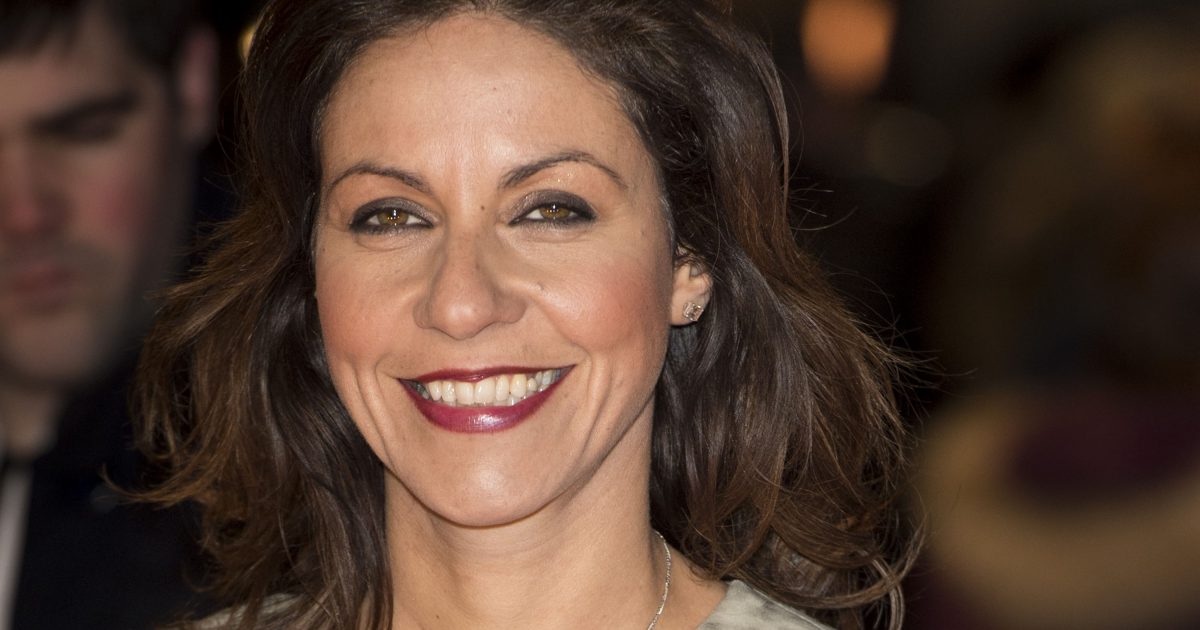Taking Care of Your Mental Health During Cancer
- TV host Julia Bradbury, 51, is looking after her fellow survivors, and is especially sending all her love and support to all the women out there newly diagnosed with breast cancer.
- The Countryfile star gives an important reminder on the mental aspect of the cancer journey for all women, and urges them to ask for help if they need it.
- If you do not have friends and family to turn to, social workers help with a variety of issues that arise with cancer treatment. They can connect you with financial resources to help pay for treatment, work with insurance companies, and provide emotional support for those who need it.
The Dublin native, who underwent a mastectomy during her battle, stresses that your mental well-being is just as important as your physical health.
Read More“Find your tribe and don’t be afraid to ask for help,” Julia recently wrote on Instagram. “And a little tip if you’re a friend or family member … As well-meaning as it is, please don’t ask/send messages asking ‘how are you’?’ – it’s a pressure to respond to everyone & you can imagine what a complicated message it really is: I’m scared, confused & don’t know what the outcome will be.. (but do send a message to say you’re thinking of that person and offer your help.”
View this post on Instagram
Julia also discussed her highly personal ITV documentary series, Breast Cancer and Me, which premiered on April 28, and is currently airing on the same network as the ladies’ talk show. The show highlights a softer side of Julia, which she was happy to showcase, saying that it’s ok to show your fears and weaknesses, especially as a means to show others that you may need help.
“I think generally people were quite surprised at how vulnerable I appeared to be,” she realized. “I was happy to show that side.”
Julia lives with her husband, Irish property developer Gerard Cunningham. They have a son named Zephyrus, 10, and twin girls, Zena and Xanthe, age 7. Julia and Gerard have been married since the year 2000.
Although she is fortunate to have a loving family, the reality is a lot of people do not. It can be even harder for those people to ask for help, which is why we’re here to give you a little nudge and provide comforting, encouraging, and informative resources for you. Don’t suffer alone.
Getting Emotional Support During Cancer
If you are not sure where to turn during or after your cancer battle, social workers can be an incredible resource, and they are there to help.
The importance of getting emotional support
One of the primary roles of a social worker is advocacy, according to Sarah Stapleton, a clinical social worker at Montefiore Medical Center. Social workers help with a variety of issues that arise with cancer treatment. They can connect you with financial resources to help pay for treatment, work with insurance companies, and provide emotional support for those who need it.
"If there is any barrier that you are finding, financial, transportation, or otherwise, a social worker is going to help advocate for you to try to do the best we can to eliminate that and make sure you get your treatment," Stapleton tells SurvivorNet.
Julia Bradbury's Breast Cancer Journey
Bradbury's diagnosis came after a couple mammograms to check on a lump she found in her breast during the summer of 2020. She announced her breast cancer diagnosis in September 2021, but she told her husband and children before sharing the news with the world.
Related: TV Host Jillian Barberie Says Her Children's Love Got Her Through Her Breast Cancer Battle
"Telling your children you have cancer is the hardest thing you'll ever have to do in your life," the BBC host said in an emotional interview. "You also don't quite now how much to tell them to be realistic, and how much do you need to protect them as well. It is a very tricky balance. I don't think any parent really knows exactly what to do."
Following a double mastectomy shortly after her diagnosis, Bradbury immediately underwent breast reconstruction.
Breast Reconstruction Regaining Your Sense of Self
As for where she's at now, she does not technically have the all clear yet. In a separate interview, she revealed that she has tiny fragments of cancerous cells in her breast tissue and a genetic predisposition to a higher than average risk of her cancer coming back. Even still, her attitude is positive.
"I'm in the top 5 or 6 percent of women in the country in terms of the likelihood of recurrence," she said. "That puts me in the 'moderate risk' category higher than the average woman but, look, it's about percentages and perspectives.
"The doctors have not found a huge spread of an aggressive cancer. I have lost my breast but been able to have an implant and keep my own nipple. I feel lucky and grateful every single day, and I have to learn to live with this risk, to accept the fragility of life, without it consuming me."
She did not need chemotherapy or radiation to treat her breast cancer, but Bradbury is now considering the pros and cons of starting a regime of hormone therapies to reduce her likelihood of recurrence.
"They're potentially life-saving drugs, but they come with significant side effects for some women joint pain, osteoporosis, trouble with your teeth, risk of uterine cancer and a running jump straight into menopause," she explained. "I have young children to consider and it's hard to know what's best."
Contributing by SurvivorNet staff.
Learn more about SurvivorNet's rigorous medical review process.


